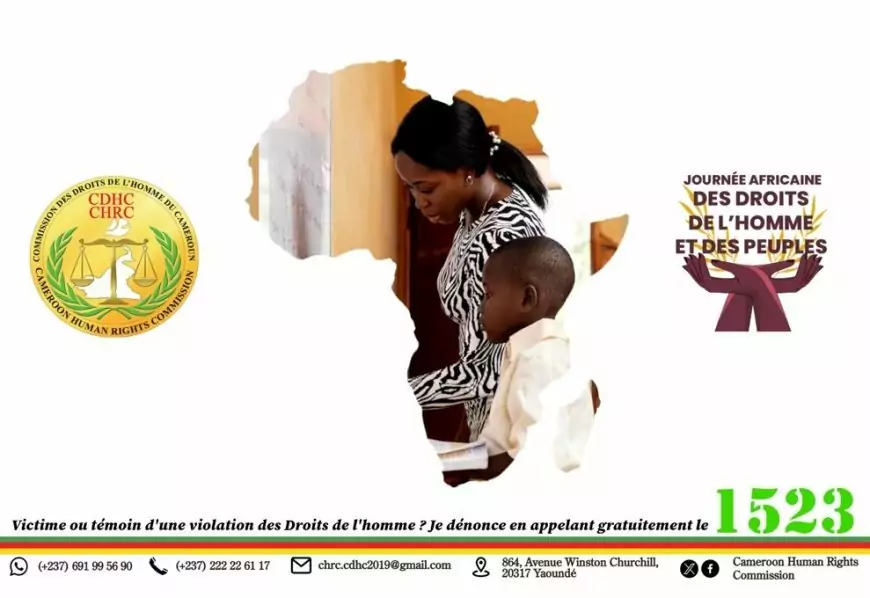Statement by the Cameroon Human Rights Commission to mark the African Human Rights Day
Theme: Educate and Skill Africa for the 21st Century: Building resilient education systems for increased access to inclusive, lifelong, quality, and relevant learning in Africa

The Commission notes that through the theme of this year’s African Human Rights Day (AHRD), Educate an Africa fit for the 21st Century: Building Resilient Educational Systems for Increased Access to Inclusive, Lifelong, Quality and Relevant Learning in Africa, the African Union (AU) calls on all Member States to develop and implement effective, sustainable and system-wide transformational strategies for education in Africa and for the resolution of the constrained education financing landscape, while strengthening the role of teachers as key agents of transformation, as they must be adequately supported and empowered to play their part in this process.
The Commission emphasises that the AU’s decision to focus on education in 2024 follows the assessment of the implementation of the Sustainable Development Goal (SDG) 4 and the AU Continental Education Strategy for Africa (CESA), in particular Strategic Goal 2 – To Build, rehabilitate, and sustain education infrastructure and develop policies that ensure a permanent, healthy and conducive learning environment in all sub-sectors and for all, so as to expand access to quality education.
The Commission notes that the assessment of Aspiration 6 of Africa’s Agenda for Children 2040, which states that "every child [should] benefit fully of quality education", shows that coverage of early childhood education remains very low. Furthermore, the provision of free and compulsory education faces challenges in terms of the direct and indirect costs associated with it. In addition, girls are disproportionately affected in terms of access to and completion of education.
The Commission recalls that Law No. 2023/007 of 25 July 2023 on Higher Education Policy in Cameroon provides in Section 37 (1) on the quality of teaching that” [t]he teacher is the main guarantor of the quality of education and shall be entitled, within the limits of available means, to suitable living conditions and to appropriate initial and in-service training.
The Commission recalls that out of the 220 recommendations accepted by the State during the adoption of the Report of Cameroon on the 24 March 2024 after undergoing the fourth cycle of the Universal Periodic Review (UPR), six are in favour of the protection of education against attacks and four are related to the right to identity – a prerequisite for access to education – which the CHRC has distributed to the relevant players, each as far as it is concerned.
The Commission reiterates the recommendations made in its previous statements, in particular the one addressed to the Ministry of Justice to step up the fight against violations of children's rights, particularly early and forced marriages, which hinder the education of the girl child and exacerbate educational inequalities, jeopardising their chances of autonomy in the future.
The Commission recommends that regional and local authorities, primary and secondary schools, the media, civil society actors and parents, each as far as they are concerned use education to change harmful customary practices that support and condone violence against women and girls, such as the physical, psychological and economic abuse, widowhood abuse and female genital mutilation (FGM), and to eliminate stereotypes that legitimise any form of violence against women.
The Commission recommends that the government and its development partners enhance collaborative efforts to ensure that the right to education (both in terms of quality and inclusiveness) is upheld and respected. The right to education is often undermined by the average quality of infrastructure, the absence or inadequacy of libraries and laboratories, and the substandard quality of teaching and assessment.










